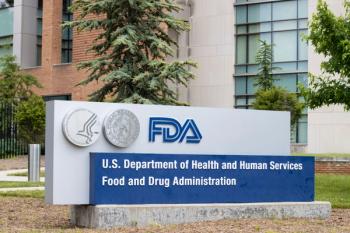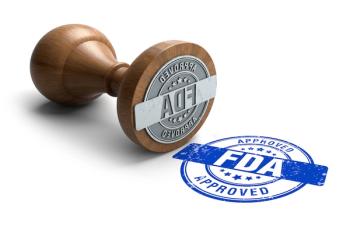
FDA Approves Finerenone for Heart Failure With Mildly Reduced or Preserved LVEF
Key Takeaways
- Finerenone is now approved for heart failure with LVEF ≥40%, expanding treatment options for this growing patient group with poor prognosis.
- The FINEARTS-HF trial showed finerenone significantly reduced cardiovascular death and heart failure events compared to placebo.
Finerenone gained FDA approval for heart failure treatment, showcasing significant benefits in reducing cardiovascular events, based on FINEARTS-HF trial results.
The FDA today approved finerenone (Kerendia; Bayer), a nonsteroidal mineralocorticoid receptor antagonist (MRA), for the treatment of
The approval comes less than 4 months after the FDA accepted Bayer’s supplemental new drug application for finerenone and granted the application priority review.2 Finerenone was first approved in the US in July of 2021 to reduce the risk of cardiovascular death, hospitalization for heart failure, non-fatal myocardial infarction, sustained estimated glomerular filtration rate (eGFR) decline, and end-stage kidney disease in adults with chronic kidney disease associated with type 2 diabetes.
“People with heart failure with left ventricular ejection fraction ≥40% face the very real possibilities of hospitalization for heart failure or [cardiovascular] death due to their disease,” Alanna Morris-Simon, MD, MSc, senior medical director of US Medical Affairs at Bayer, said in a statement.1 “Even with current treatments, 21% of patients with symptomatic heart failure escalate to hospitalization for heart failure or [cardiovascular] death, and 25% who experience hospitalization are readmitted due to heart failure within one year of discharge."
The approval was based on results from the phase 3 FINEARTS-HF trial (
The international, double-blind trial randomized patients with heart failure and an LVEF of 40% or greater 1:1 to receive either finerenone at a maximum dose of 20 mg or 40 mg once daily (n = 3003) or a matching placebo (n = 2998).3 At a median follow-up of 32 months, a total of 1083 primary-outcome events occurred among 624 patients in the finerenone cohort, and 1283 primary-outcome events occurred in 719 of the patients in the placebo group (rate ratio, 0.84; 95% CI, 0.74-0.95; P = .007).
In the finerenone group, there were 842 total worsening heart failure events, compared with 1024 in the placebo group (rate ratio, 0.82; 95% CI, 0.71-0.94; P = .006). In the finerenone and placebo groups, 8.1% and 8.7% of patients, respectively, died from cardiovascular causes (HR, 0.93; 95% CI, 0.78-1.11).
“The FDA’s approval of finerenone expands treatment options for patients with heart failure with a left ventricular ejection fraction of ≥40%—a large and growing group of patients with a poor prognosis,” Scott D. Solomon, MD, professor of medicine at Harvard Medical School, director of the Clinical Trials Outcomes Center at Mass General Brigham, and chair of the executive committee for the FINEARTS-HF study, said in a statement.1 “Based on the clinical efficacy we saw in the FINEARTS-HF study, finerenone can become a new pillar of comprehensive care.”
Regarding safety, 611 (20.4%) patients in the finerenone group and 616 (20.6%) in the placebo group discontinued treatment for reasons other than death. Serious adverse events occurred in 1157 patients (38.7%) receiving finerenone and 1213 patients (40.5%) in the placebo cohort. An increased risk of hyperkalemia and a reduced risk of hypokalemia were seen in those taking finerenone. None of the hyperkalemia cases led to death, and hyperkalemia led to hospitalization in 16 patients (0.5%) receiving finerenone and 6 patients (0.2%) receiving a placebo. Overall, no new safety signals were identified in the FINEARTS-HF trial.2
References
1. U.S. FDA approves Kerendia (finerenone) to treat patients with heart failure with left ventricular ejection fraction ≥40% following priority review. News release. Bayer. July 14, 2025. Accessed July 14, 2025.
2. U.S. FDA accepts supplemental new drug application under priority review for new indication for Kerendia (finerenone) in patients with heart failure with left ventricular ejection fraction of ≥40%. News release. Bayer. March 17, 2025. Accessed July 10, 2025.
3. Solomon SD, McMurray JJV, Vaduganathan M, et al. Finerenone in heart failure with mildly reduced or preserved ejection fraction. N Engl J Med. 2024;391(16):1475-1485. doi:10.1056/NEJMoa2407107
Newsletter
Stay ahead of policy, cost, and value—subscribe to AJMC for expert insights at the intersection of clinical care and health economics.









